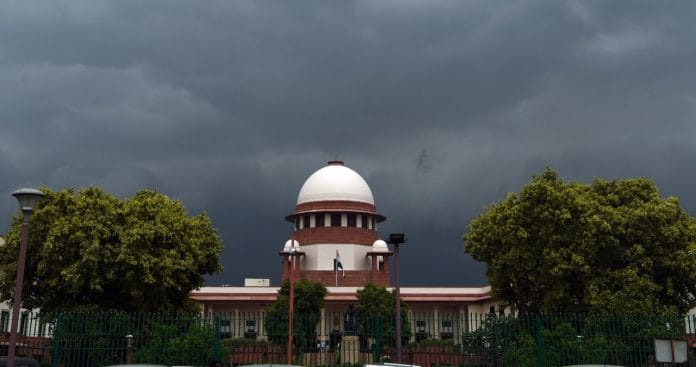New Delhi: The Supreme Court on Wednesday reiterated its 2015 ruling that Section 66A of the Information Technology Act (IT) was unconstitutional and no citizen could be prosecuted for its alleged violation.
A three-judge bench, led by Chief Justice U.U. Lalit dictated the order on a petition filed by non-governmental organisation People’s Union for Civil Liberties (PUCL) in July 2021, seeking a direction to the Centre and courts across the country to ensure cases were not registered under the outlawed provision.
PUCL claimed despite the top court quashing Section 66A in 2015, prosecution under it continued.
Introduced in 2008 as an amendment to the IT Act 2000, Section 66A gave the government power to arrest and imprison an individual for “offensive and menacing” online posts.
Wednesday’s order came after the bench went through a central government report, and learnt that citizens were still being prosecuted for the alleged violation of Section 66A. The report was prepared in response to the court’s direction on 7 September.
“The information given in tabular form does suggest that despite the issue regarding validity of section 66A having been pronounced upon by this court in 2015, number of crime and criminal proceedings still reflect reliance upon section 66A,” noted the order, adding: “Such criminal proceedings, in our view, are directly in the teeth of the directions issued by this court in Shreya Singhal versus Union of India.”
Further, the court ordered that those cases where the alleged violation has “been projected” and citizens were facing prosecution for the alleged violation of the law, the “reference and reliance upon the said section” from all these crimes or criminal proceedings shall stand deleted.
It directed state police chiefs as well as home secretaries and competent officers in Union Territories to instruct the entire police force not to register any complaint or crime with reference to the any violation under Section 66A.
However, this direction shall apply only with regard to offences under the scrapped Section 66A. But if the crime in question has other facets, namely other offences are also alleged, then the relevant sections shall be invoked, the bench clarified.
Striking down a section by the court is not akin to it being repealed. It continues to remain in statute books until formally repealed by Parliament. But the provision becomes unenforceable.
In view of this legal principle, the court said if any publication — government, semi-government or private — on IT Act quotes Section 66A as part of it, then information must be provided in the footnote to duly inform readers that the section has already been pronounced as unconstitutional.
While quashing the law in 2015, a two-judge bench had underlined the supremacy of the right to freedom of speech and expression and the “chilling effect” Section 66A had on this fundamental right. The provision, it held, was open-ended and unconstitutionally vague.
The status report given by the Centre to the court Wednesday revealed that some states still used the section to prosecute people for the alleged violation of the law.
These included Chhattisgarh where 73 FIRs were lodged after 2015, of which seven resulted in acquittal, one was withdrawn and 20 were closed. Proceedings have been initiated to delete the section in 30 cases, while in 15 they are likely to be dropped.
In Karnataka, 247 cases were filed after the Shreya Singhal verdict, but all these cases have been withdrawn. Even West Bengal has invoked the scrapped law in 38 cases.
Out of 116 cases registered under Section 66A in Uttar Pradesh, only six are pending. Applications to withdraw prosecution in these cases are pending before the concerned court, the Centre’s status report said.
Also read: 2 SC justices object to CJI Lalit’s ‘letter’ process to elevate judges – full text of statement






